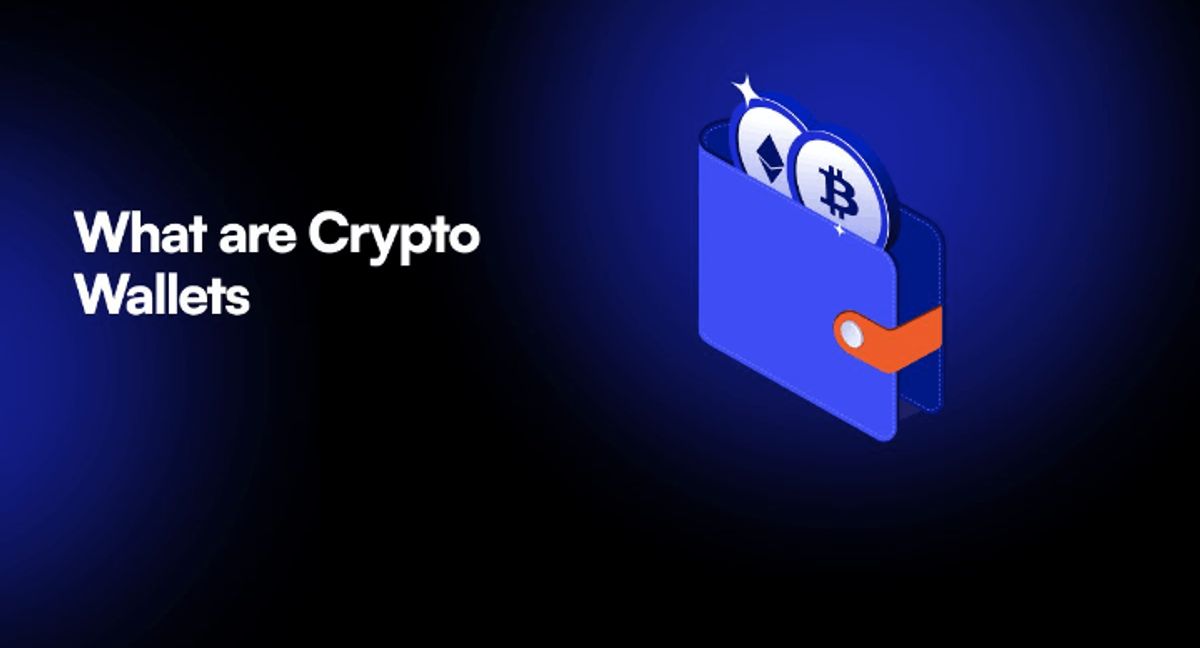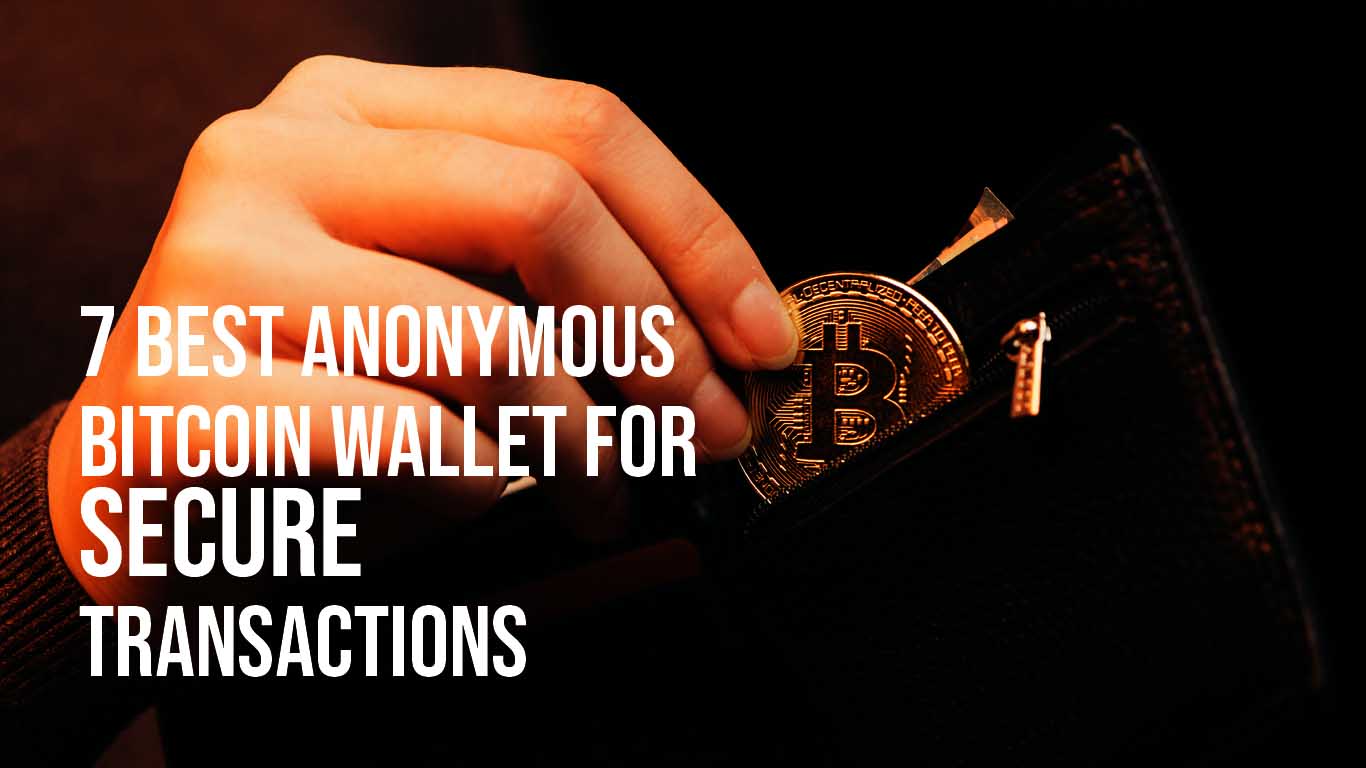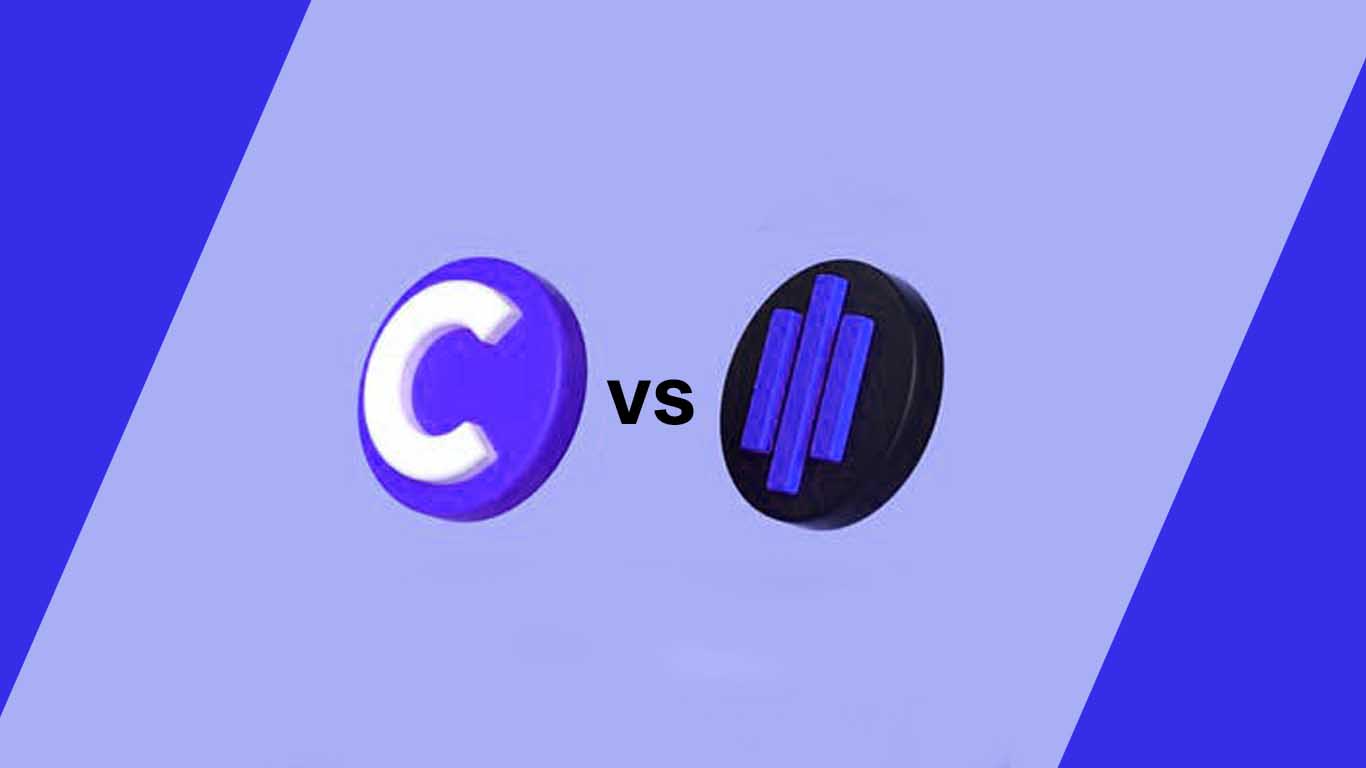In the ever-evolving world of cryptocurrencies, securing digital assets with reliable wallets is a top priority for investors. The year 2023 has seen a plethora of online crypto wallets, each promising robust features and security measures. This article sifts through the multitude to highlight the top picks for the best online crypto wallets, catering to various needs and preferences. From hot wallets that offer convenience and quick access to cold wallets that provide enhanced security, we’ve rounded up the best options available to help you make an informed decision on where to store your digital wealth.
Key Takeaways
- Coinbase Wallet and TrustWallet are top choices for beginners and mobile users, respectively, offering user-friendly interfaces and strong security.
- MetaMask remains the favorite for Ethereum users, while Exodus and Crypto.com are highly regarded for desktop users and DeFi enthusiasts.
- For those seeking extra security, Ledger Nano S Plus and KeepKey are the leading cold wallets, with SafePal offering a hybrid solution.
- Investors looking for Bitcoin-specific wallets would find Electrum and BlueWallet to be among the best options for advanced and mobile users.
- Integrating software and hardware wallets can provide a comprehensive approach to crypto management, with Trezor and ZenGo setting high standards in their respective fields.
Comprehensive Guide to the Best Hot Wallets of 2023


Coinbase Wallet: A User-Friendly Choice for Beginners
Coinbase Wallet stands out as a top choice for newcomers to the cryptocurrency world. Its user-friendly interface makes it straightforward for beginners to navigate the complex landscape of digital assets. With support for over 100,000 digital assets, it’s a versatile tool for managing a diverse portfolio.
The wallet is not only easy to use but also offers robust security features, such as multi-signature and two-factor authentication. This ensures that users can maintain a high level of security while enjoying the convenience of a hot wallet.
Coinbase Wallet is free and integrates seamlessly with the Coinbase exchange, allowing users to buy crypto directly and transfer funds with ease.
However, it’s important to note that, like other hot wallets, Coinbase Wallet shares similar security risks. It’s also primarily available on mobile and tablet devices, with a browser extension for Chrome users. Despite these considerations, its integration with a reputable trading platform provides a sense of reliability, especially for those just starting their crypto journey.
MetaMask: The Go-To Wallet for Ethereum Enthusiasts
MetaMask stands out as a favorite among Ethereum users, with its user-friendly interface and extensive compatibility. It’s not just limited to Ethereum; it supports a range of blockchains and Layer 2 solutions like Polygon, making it a versatile choice for diverse crypto activities.
MetaMask’s ease of use and integration with Web3 makes it a top choice for interacting with decentralized applications and NFT marketplaces.
While it’s free and highly rated, users should be aware of the potential for high fees when buying Ether, and the inability to directly store Bitcoin. Despite these considerations, its position as a leading Ethereum wallet is undisputed, with a strong community and developer support due to its open-source nature.
Supported Blockchains and Assets:
- Ethereum (ETH)
- ERC-20 tokens
- Layer 2 solutions (e.g., Polygon)
User Rating:
- 4.8 stars
TrustWallet: Optimal Mobile Wallet for On-the-Go Users
Trust Wallet stands out as a versatile mobile wallet catering to the needs of NFT collectors and decentralized application (dApp) enthusiasts. With its integrated Web3 browser, users can seamlessly interact with dApps and blockchain games, streamlining the process of acquiring NFTs through its built-in decentralized exchange.
Trust Wallet’s non-custodial nature ensures that users maintain full control over their private keys, emphasizing the importance of personal security in the management of digital assets.
Despite its robust features, Trust Wallet does have some limitations, such as the absence of two-factor authentication. However, its ease of use and integration with Binance DEX for straightforward token purchases using debit or credit cards make it a strong contender for mobile users.
- Integration with Binance DEX
- Non-custodial wallet
- Direct access to dApps and NFTs
- No two-factor authentication
For those seeking a mobile-centric crypto wallet, Trust Wallet offers a compelling package, especially for users who prioritize convenience and a diverse ecosystem of supported cryptocurrencies.
Exodus: Streamlined Desktop Wallet Experience
Exodus has emerged as a top choice for desktop users seeking a streamlined and intuitive crypto wallet experience. With its regular bi-weekly updates, the platform ensures a smooth operation and a rich feature set across Windows, Linux, and Mac operating systems. The wallet’s compatibility with iOS and Android devices, as well as integration with Trezor hardware wallets, extends its utility beyond the desktop environment.
The wallet’s functionality is not just limited to storing assets; users can also engage in buying, trading, or staking cryptocurrency directly within the wallet. Exodus’s commitment to user education is evident through its extensive library of explanatory content, catering to both new and experienced crypto enthusiasts.
Exodus’s focus on ease of use and varied functionality positions it as a formidable option for desktop users.
Here are some key points to consider:
- Supports over 260 crypto assets
- Compatible with Trezor One and Trezor T hardware wallets
- Allows users to buy Bitcoin with Apple Pay
- Provides 24/7 customer support
However, users should be aware of the higher transaction fees on the in-wallet crypto exchange and the absence of native 2-factor authentication and multi-signature support, which may be a concern for some.
Crypto.com: Leading Wallet for Decentralized Finance (DeFi) Users
The Crypto.com DeFi Wallet stands out as a robust platform for those venturing into the world of decentralized finance. With support for over 30 blockchains, including Ethereum, Bitcoin, and Crypto.com’s own blockchain, it offers a diverse range of options for users to engage with DeFi products.
The wallet’s integration with the Crypto.com exchange account simplifies the transfer of cryptocurrencies between platforms, enhancing user convenience.
Here are some key features of the Crypto.com DeFi Wallet:
- Complete control over digital assets and private keys
- One-to-one crypto swaps
- Tools to earn passive income
- Staking rewards on multiple cryptocurrencies
- An Ethereum gas tracker
While the wallet is free and provides a gateway to a variety of dApps, users should be mindful of the risks associated with DeFi services. It’s crucial to approach these products with caution, as the sector is known for its volatility and potential security concerns.
Top-Rated Cold Wallets for Enhanced Security


KeepKey: The Ideal Cold Wallet for Newcomers
KeepKey stands out as an excellent choice for those new to the world of cryptocurrency storage. Its affordable price and user-friendly interface make it a top pick for beginners. The device’s large and clear digital display supports QR codes, simplifying the process of transferring assets securely.
Despite its advantages, KeepKey does have some limitations, including a limited variety of third-party integrations and a heftier build compared to its competitors. However, these factors do not overshadow its value, especially considering it supports over 7,000 cryptocurrencies.
KeepKey’s balance of security, ease of use, and affordability positions it as a leading option for newcomers to cold wallet storage.
For those concerned about security, KeepKey provides a robust solution. Cold wallets like KeepKey are not connected to the internet, offering a secure place to store crypto ownership keys and protect them from online threats.
Ledger Nano S Plus: The Premier Hardware Crypto Wallet
The Ledger Nano S Plus has emerged as a top choice for those seeking a secure and versatile hardware wallet. Its ability to support over 7,000 cryptocurrencies across 350 blockchain networks makes it a powerhouse for crypto enthusiasts who require a wide range of asset management options.
| Feature | Details |
|---|---|
| Supported Assets | 7,000+ cryptocurrencies |
| Compatibility | 350+ blockchain networks |
| Integrated Apps | UniSwap, OpenSea, Aave, Yearn.finance |
| Connectivity | USB-C |
| Price | $79 for the base model |
| CoinLedger Rating | 4.8 stars |
The Nano S Plus is not just about quantity; it’s also about quality. Users can install up to 100 apps simultaneously, and the integration with the Ledger Live app allows for seamless trading and asset management. The wallet’s design includes a Secure Element chip, akin to those used in payment systems and passports, ensuring an additional layer of security.
The Ledger Nano S Plus stands out for its enhanced display, increased storage capacity, and the convenience of a USB-C port, making it a significant upgrade from its predecessor.
While it may be pricier than some entry-level options, the Ledger Nano S Plus justifies its cost with robust security features and the ability to buy and sell crypto directly through its native application. The two-button press verification for all transactions adds to the user’s peace of mind, knowing that their assets are well-protected.
SafePal: The Best of Both Worlds with Hybrid Wallet Features
SafePal, a unique player in the crypto wallet space, offers a hybrid solution that caters to both security-conscious investors and those who prefer the convenience of a hot wallet. With a starting price of just $49.99, SafePal provides an affordable entry point into the world of hardware wallets, while also offering a comprehensive suite of software tools.
The wallet supports a staggering array of over 30,000 cryptocurrencies, making it a versatile choice for a diverse range of users. Despite its expansive support, users should note that hardware integration is limited to the SafePal hot wallet, and the limited battery life of the hardware device may be a concern for some.
SafePal’s approach to crypto security is to offer flexibility: users can opt for either the software wallet, available as a mobile app and browser extension, or the hardware wallet models. Those who utilize both the hot and cold wallet solutions from SafePal enjoy an added layer of functionality and flexibility.
SafePal’s global reach extends to over six million users across more than 190 countries, highlighting its popularity and trust within the crypto community.
Here’s a quick summary of SafePal’s offerings:
- Software and hardware wallet options
- Supports more than 30,000 cryptocurrencies
- Cold wallets come with a 1-year warranty
- Entry-level wallet priced at $49.99
While SafePal stands out for its hybrid features, users should weigh the pros and cons to determine if it aligns with their specific needs in a crypto wallet.
Selecting the Best Bitcoin Wallets for Different User Needs


Electrum: Advanced Features for Seasoned Bitcoin Users
Electrum stands out as a specialized wallet for Bitcoin, offering a suite of advanced features that cater to experienced users. Its focus on security and multisignature support makes it a top choice among the best crypto wallets of 2023. With no account minimums and zero fees, Electrum provides a cost-effective solution for Bitcoin management.
While Electrum may only support Bitcoin, it compensates with robust security measures, including two-factor authentication and the ability to connect seamlessly to cold storage. Its multisignature transactions require multiple approvals, adding an extra layer of security for users.
Electrum’s dedication to Bitcoin ensures that all transactions are verified on the blockchain, and its compatibility with other hardware wallets like Ledger, Trezor, and Keepkey enhances its utility.
However, it’s important to note that Electrum’s setup and interface are not beginner-friendly, and it lacks direct customer support options. This wallet is best suited for those who have a strong understanding of cryptocurrency and seek a high degree of customizability in their Bitcoin transactions.
BlueWallet: The Ultimate Mobile Bitcoin Wallet
BlueWallet stands out as a prime choice for mobile Bitcoin users, offering a modern design and an accessible user interface. It caters specifically to Bitcoin transactions, both on-chain and through the Lightning Network, ensuring a focused and optimized experience. Users appreciate the ability to create or import multiple wallets and the added security of multi-signature vaults.
However, the absence of two-factor authentication and the need for more in-app tutorials for advanced tools are notable drawbacks. Despite these cons, BlueWallet’s commitment to simplicity and functionality makes it a top contender for those who prioritize mobility and ease of use in their Bitcoin transactions.
BlueWallet’s integration with the Lightning Network and its user-friendly approach make it a standout mobile wallet for Bitcoin enthusiasts.
Here’s a quick overview of BlueWallet’s features:
- Modern design with an accessible user interface
- Supports both on-chain and lightning transactions
- Create or import multiple wallets
- Multi-signature vaults for added security
CoinKite: Tailored for Bitcoin-Only Investors
CoinKite stands out as a specialized solution for investors who focus exclusively on Bitcoin. Its bitcoin-only firmware ensures a dedicated environment for Bitcoin transactions, minimizing the complexities associated with multi-currency wallets. The simplicity of CoinKite is its hallmark, offering a streamlined experience for those who prefer not to diversify their crypto portfolio.
For users who value security alongside specialization, CoinKite’s compatibility with various reputable applications like Electrum and Sparrow adds an extra layer of confidence. The wallet’s support for desktop access through the BitBoxApp is a notable feature, although mobile users should be aware that it is currently limited to Android devices.
CoinKite’s approach to Bitcoin investing is clear-cut and focused, making it more than adequate for sophisticated investors who require advanced features.
While CoinKite may not cater to every type of investor, its targeted features make it a compelling choice for Bitcoin purists. The wallet’s emphasis on a bitcoin-only ecosystem aligns with the needs of investors who are looking for a non-custodial wallet solution that prioritizes Bitcoin above all else.
Understanding Crypto Wallets: A Primer for Investors


What Is a Crypto Wallet and Why Do You Need One?
A crypto wallet is more than just a place to store digital currencies; it is an essential tool for participating in the cryptocurrency ecosystem. Unlike a physical wallet, which holds actual cash, a crypto wallet stores secure digital codes—private keys—that allow you to access and manage your cryptocurrencies on the blockchain.
- Security: Safeguards your private keys, protecting your assets from unauthorized access.
- Transactions: Enables sending and receiving of cryptocurrencies, acting as a gateway for digital exchanges.
- Convenience: Offers a user-friendly interface to interact with the blockchain, simplifying the management of your digital assets.
Crypto wallets are crucial for anyone looking to buy, trade, or sell cryptocurrencies. They provide the security and functionality needed to engage with a blockchain network effectively.
Choosing the right crypto wallet depends on your specific needs, whether it’s the convenience of a hot wallet connected to the internet or the enhanced security of a cold wallet that stores keys offline. Understanding the role and functions of a crypto wallet is the first step towards making informed decisions in the crypto space.
How Do Crypto Wallets Work? A Technical Overview
At the core of cryptocurrency use, crypto wallets serve as the digital command center for managing your digital assets. Crypto wallets work by storing the private keys that prove ownership of cryptocurrencies. These keys are essential for executing transactions, such as sending or receiving digital currency.
- Private Keys: Unique codes that grant ownership access.
- Public Addresses: Identifiers for receiving transactions.
- Blockchain Interaction: Wallets interact with the blockchain to track ownership and transaction history.
Crypto wallets do not store the cryptocurrencies themselves; instead, they safeguard the private keys that are vital for accessing your digital assets on the blockchain.
Understanding the mechanics of crypto wallets is crucial for anyone involved in the digital currency space. Whether you’re a seasoned investor or new to the scene, the 2023 guide to best crypto wallets for investors is an invaluable resource that covers security, convenience, investment tools, and future innovations, providing tailored recommendations for different investor types.
The Safety of Crypto Wallets: Assessing Risks and Protections
When it comes to the safety of crypto wallets, the primary concern is the security of public and private keys. The safest wallets offer features like two-factor authentication and multi-signature support. These measures significantly reduce the risk of unauthorized access and potential fraud.
- Two-factor authentication (2FA) adds an additional layer of security beyond just a password.
- Multi-signature support requires more than one key to authorize a transaction, providing an extra safeguard.
- Open-source code allows for community review and contributes to the transparency of security practices.
It’s crucial to recognize that while crypto wallets can be very secure, they are not impervious to risks. Users must be diligent in following best practices to protect their digital wealth.
Selecting a wallet with a strong, stable history and a high level of security is essential. Users should investigate whether a wallet has ever been compromised, read user reviews, and consider the size and engagement of its community. Ultimately, the responsibility for security also lies with the user, who must safeguard their keys and be aware of the potential for loss.
Integrating Software and Hardware Wallets for a Comprehensive Approach


Guarda: Diverse Cryptocurrency Selection at Your Fingertips
Guarda stands out in the realm of crypto wallets with its vast support for a multitude of digital assets. It is renowned for its ability to manage over 400,000 cryptocurrencies across more than 50 blockchains, including major players like Bitcoin, Ethereum, Cardano, and Solana. This makes Guarda an optimal choice for investors looking to consolidate a diverse portfolio of crypto assets in one place.
Despite its extensive support, Guarda does not currently facilitate NFTs, which may be a consideration for some users. However, its free price point and a high user rating of 4.2 stars reflect its value proposition to the crypto community.
Guarda’s intuitive user interface and self-custody approach ensure a high level of security and privacy, requiring no personal information during setup.
While Guarda’s strengths are numerous, potential users should be aware of the higher in-app purchasing fees, which could be a deciding factor for those frequently transacting within the wallet. Here’s a quick comparison of Guarda’s pros and cons:
- Pros
- Supports a vast array of coins and tokens
- User-friendly interface
- Cons
- Higher in-app purchasing fees
Choosing the right wallet for your needs involves weighing these factors against your personal preferences and investment strategies.
ZenGo: Simplifying Account Recovery for Users
ZenGo is revolutionizing the crypto wallet landscape by simplifying the account recovery process. ZenGo’s key innovation lies in its use of mathematical secret shares, which eliminates the need for traditional private keys. This feature is particularly appealing for users who fear losing access to their assets due to misplaced keys.
ZenGo’s approach to security is both innovative and contentious. While it enhances user convenience, it also sparks debate among crypto enthusiasts about the importance of private key ownership.
ZenGo supports a wide array of cryptocurrencies, including Bitcoin, Ethereum, and Dogecoin, making it a versatile choice for diverse portfolios. The wallet’s user-friendly interface is complemented by robust security measures such as biometric encryption and three-factor authentication.
Here are some key points about ZenGo:
- Free to use
- High user rating of 4.1 stars
- No reported cases of phishing, hacking, or unauthorized access as of 2024
- Offers more than 1,000 assets and supports staking and DeFi
Despite its many benefits, ZenGo’s departure from traditional private key management has been a point of contention for some traders. However, its commitment to security and ease of use makes it a strong contender in the market.
Trezor: Setting the Standard for Hardware Wallet Security
Trezor has long been a pioneer in the hardware wallet space, offering robust security features that have set the standard for cold storage solutions. While it may be more expensive than some of its competitors, the investment in a Trezor wallet is a commitment to securing your digital assets from remote attacks.
Trezor’s integration with software products like Exodus and its own staking and crypto purchase services make it a versatile choice for users seeking a blend of security and functionality.
Despite some concerns over the physical robustness of the wallet’s body, Trezor’s reputation for security remains strong. The wallet supports an impressive range of over 1,000 cryptocurrencies, making it a suitable option for a diverse portfolio. However, it’s important to note that there is no iOS support, which may be a deciding factor for Apple device users.
Here’s a quick overview of Trezor’s offerings:
| Feature | Details |
|---|---|
| Price | $69 for the Trezor Model One |
| Supported Assets | 1,000+ cryptocurrencies |
| CoinLedger Rating | 4.2 stars |
| Compatibility | Android, Desktop, Trezor Suite Lite for mobile |
While Trezor may not have the highest CoinLedger rating, its commitment to security and the sheer number of supported assets make it a top contender for those prioritizing the safety of their crypto investments.
Conclusion
As we navigate the dynamic landscape of cryptocurrency, selecting the right wallet is crucial for both security and convenience. Our comprehensive review of the best online crypto wallets in 2023 has highlighted a variety of options tailored to different needs, from hot wallets like Coinbase Wallet and MetaMask for beginners and Ethereum enthusiasts, to cold wallets such as Ledger Nano S Plus for those seeking robust security. Whether you prioritize ease of use, integration with DeFi platforms, or customer support, there is a wallet out there to suit your crypto journey. Remember, the best wallet for you depends on your individual goals and the level of security you desire. With the insights from this guide, you’re now equipped to make an informed decision that aligns with your investment strategy and ensures the safekeeping of your digital assets.
Frequently Asked Questions
What are the best crypto wallets for beginners in 2023?
For beginners, the best crypto wallets in 2023 are Coinbase Wallet, known for its user-friendly interface, and KeepKey, which is considered the ideal cold wallet for newcomers.
Which wallet is recommended for Ethereum users?
MetaMask is the go-to wallet for Ethereum enthusiasts, offering seamless integration with Ethereum-based applications and services.
What are the top choices for mobile crypto wallets?
TrustWallet and BlueWallet are among the top choices for mobile crypto wallets, offering convenience and ease of use for on-the-go users.
Which wallets are best suited for DeFi users?
Crypto.com is a leading wallet for Decentralized Finance (DeFi) users, providing a range of features and tools for engaging with DeFi platforms.
How do I choose between hot and cold wallets?
Your choice between hot and cold wallets should depend on your security needs and investment goals. Hot wallets offer convenience and easy access, while cold wallets provide enhanced security by storing your keys offline.
Are crypto wallets safe to use?
Crypto wallets can be safe to use when proper security measures are taken. It’s important to assess risks and protections, such as two-factor authentication, backup options, and the reputation of the wallet provider.






